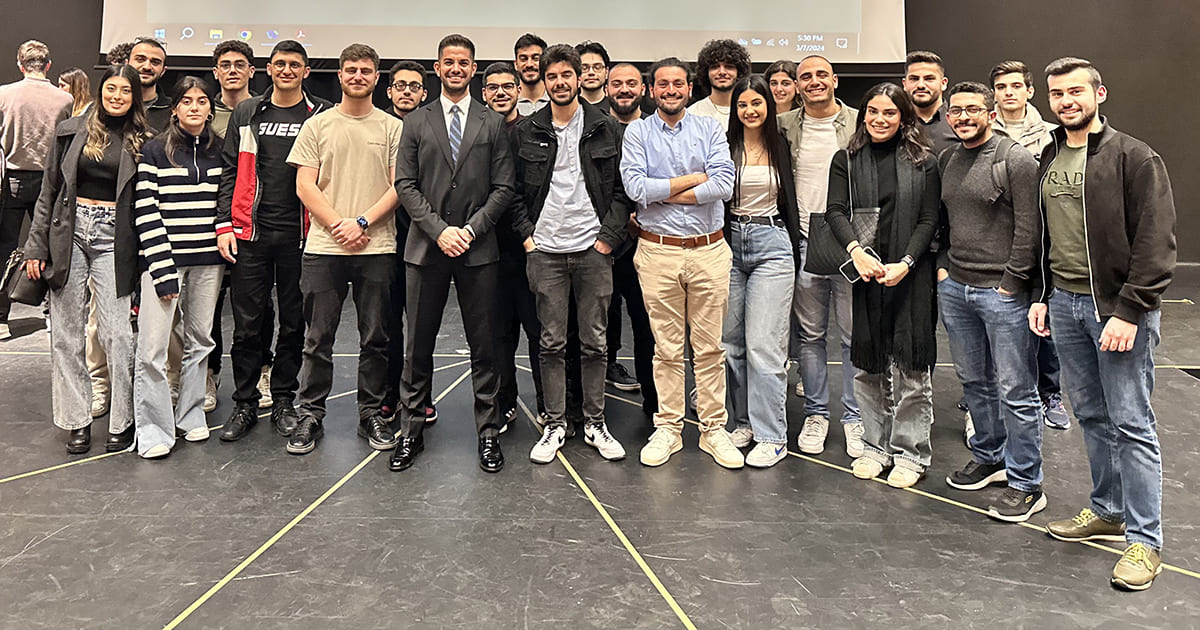Innovation Meets Future Market Needs at the School of Engineering
A new course by Dr. Evan Fakhoury matches engineering with business development ambitions through cutting-edge technologies.
The School of Engineering at LAU is spearheading initiatives to blend engineering with entrepreneurial pursuits, aligning academic offerings with fast-evolving industry needs.
This forward-thinking approach is embodied in a newly launched course, “Introduction to Virtual Reality (VR) and the Startup Journey.” Designed to equip engineering majors with the skills needed to thrive in today’s market, this course represents a significant step in the school’s commitment to fostering innovation and practical experience among its students.
The course, meticulously crafted by Assistant Professor of Mechanical Engineering Evan Fakhoury, integrates engineering expertise with business acumen. It provides students with essential programming skills to create VR applications and encourages them to launch tech startups as part of their learning outcomes. This initiative is part of a broader effort by the SOE to support students in achieving their post-graduation goals and to nurture their entrepreneurial ambitions.
“The aim,” explains Dr. Fakhoury, “is to offer students a comprehensive understanding of VR technologies and their real-world applications.” The course is structured in two segments: the first focuses on VR fundamentals and basic programming, while the second emphasizes business and entrepreneurial skills, including ideation, market analysis, prototyping, product development and user testing.
Dr. Fakhoury also highlights the course’s emphasis on practical experience, particularly through the LAU Innovate Spark Competition, a university-based startup accelerator. This semester, 13 out of over 100 applications to the program originated from Dr. Fakhoury’s class, with five advancing to the five-month incubation phase.
Third-year Computer Engineering majors Elissa Diab and Georgio Nassar, who took this course, have created ACE, a VR platform designed to enhance job-interview preparation through an AI-powered chatbot. Their experience underscores the course’s impact on building a solid business foundation beyond technical knowledge, preparing them for future endeavors in tech.
Through such initiatives, the SOE continues to bridge the gap between engineering education and entrepreneurial success, preparing students to meet the challenges and opportunities of the modern market. “We are confident that this approach will equip our graduates with the well-rounded skillset needed to become the future leaders and innovators of the tech industry,” said Professor and Dean of the SOE Michel Khoury.
